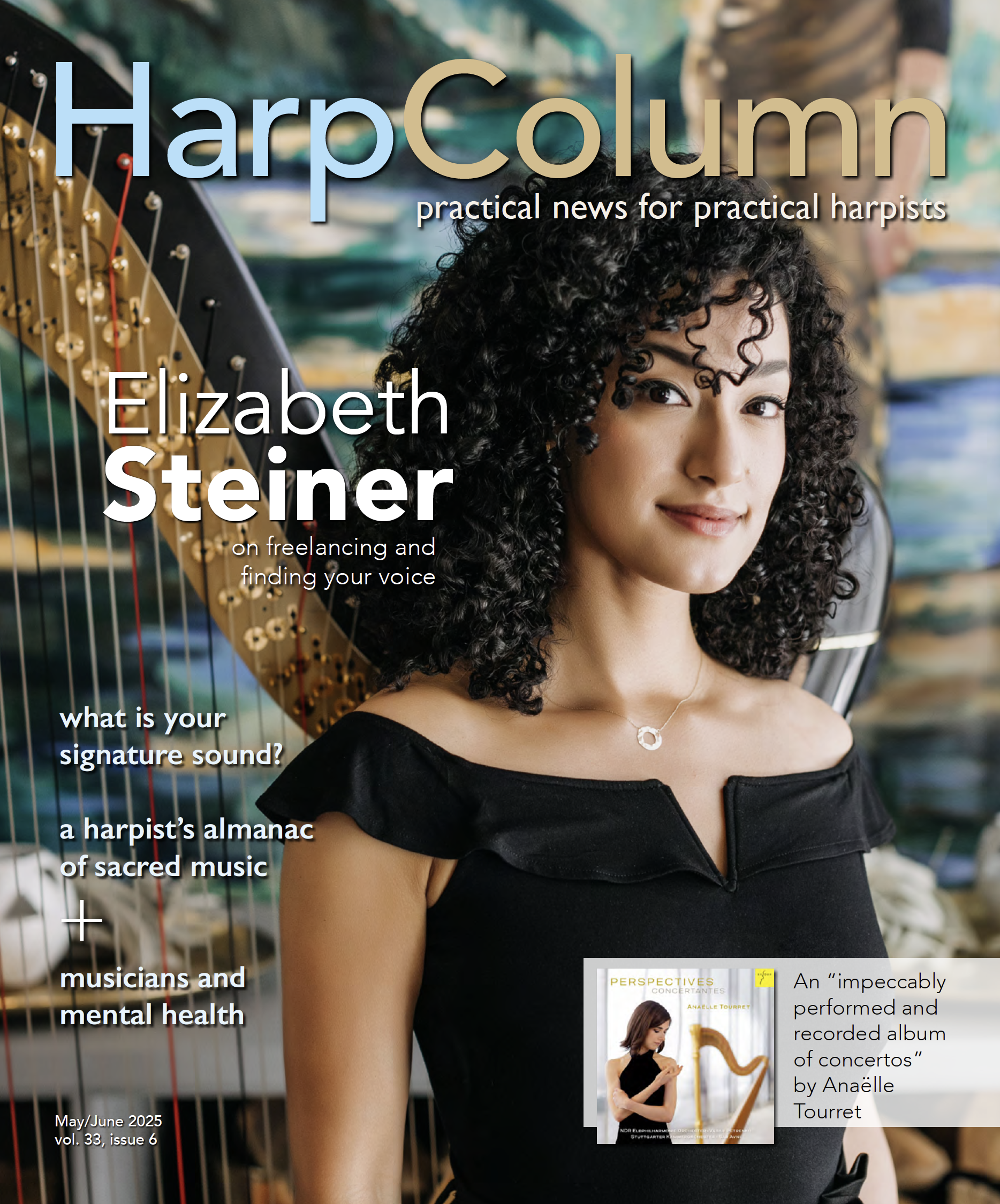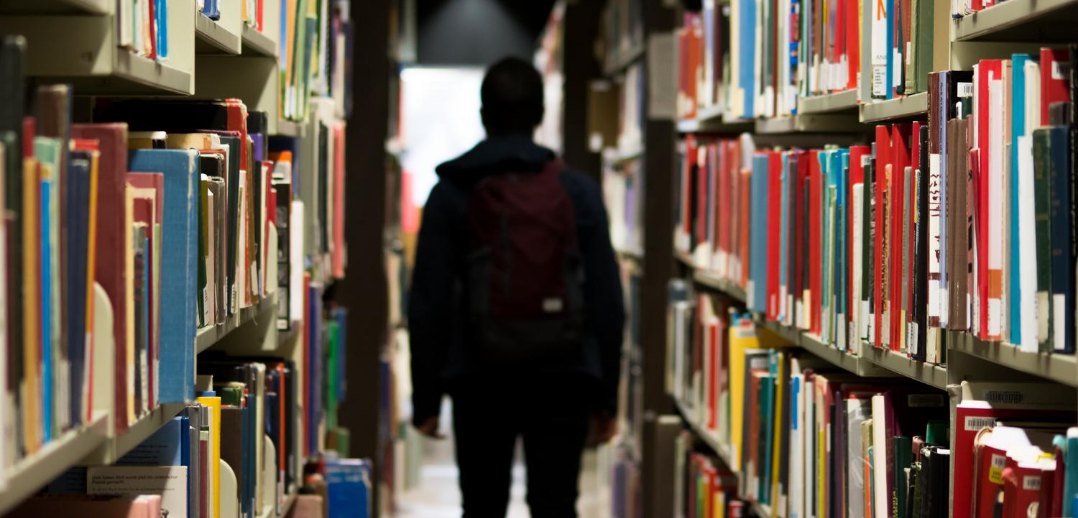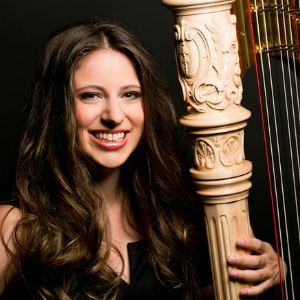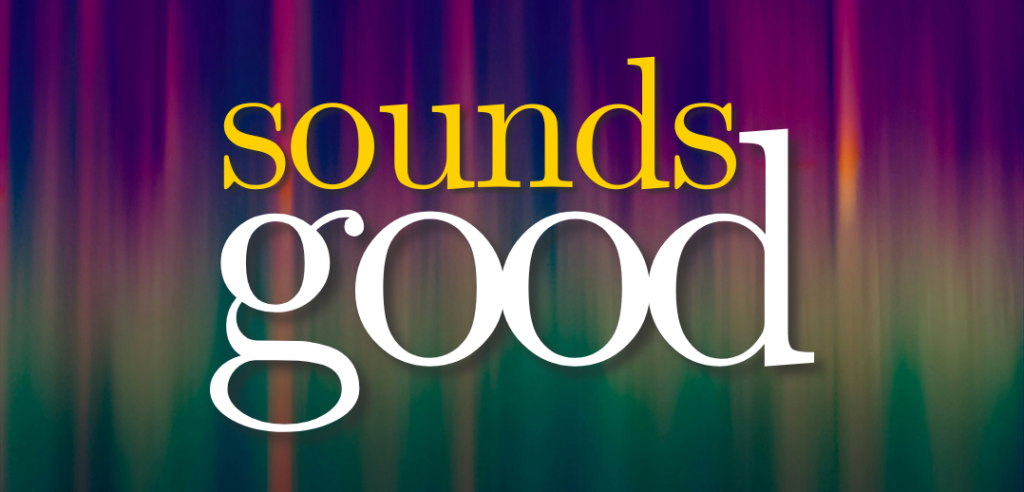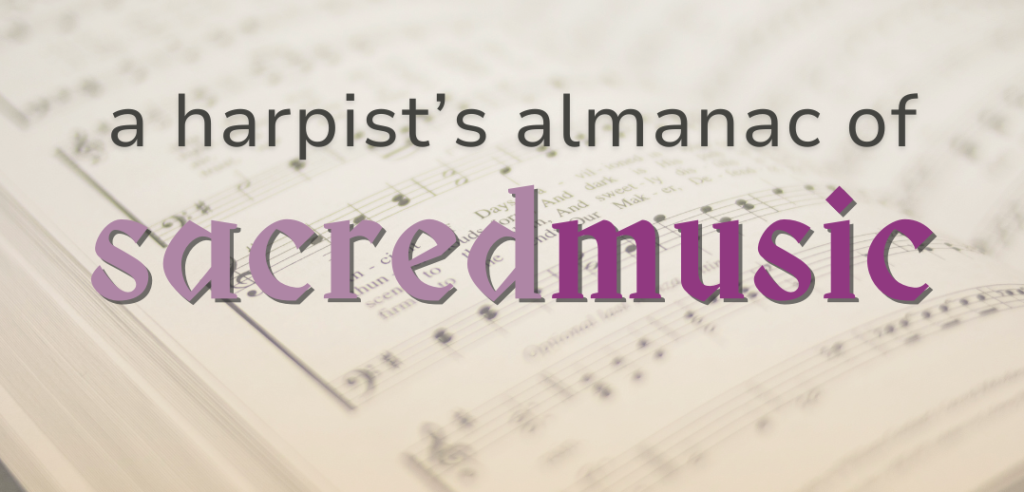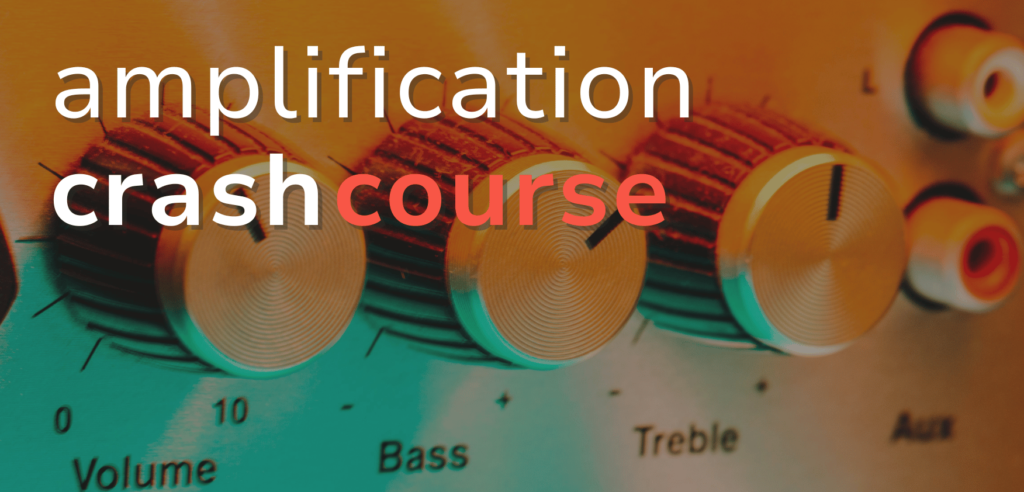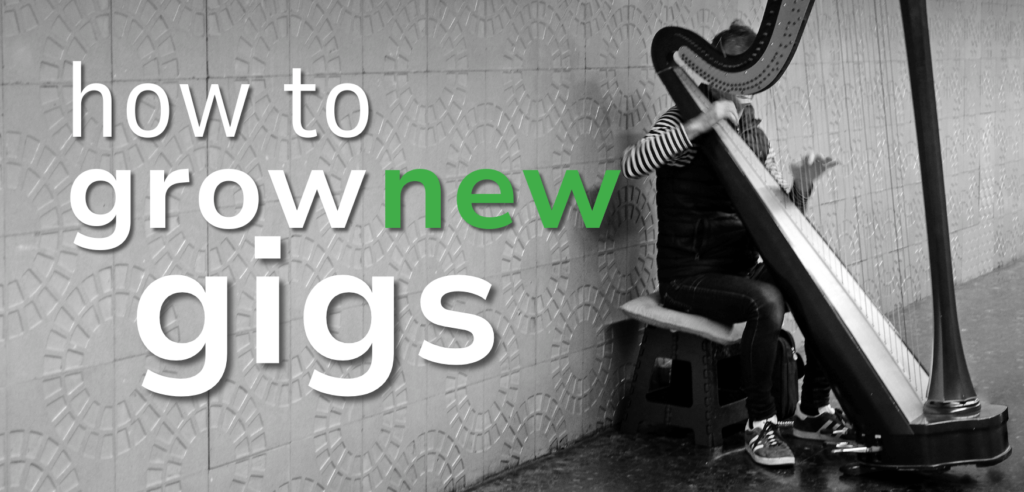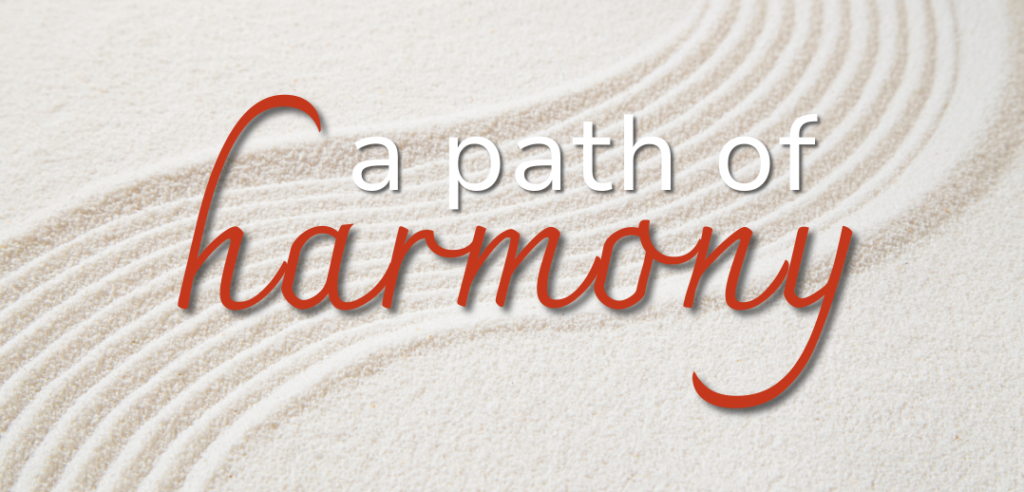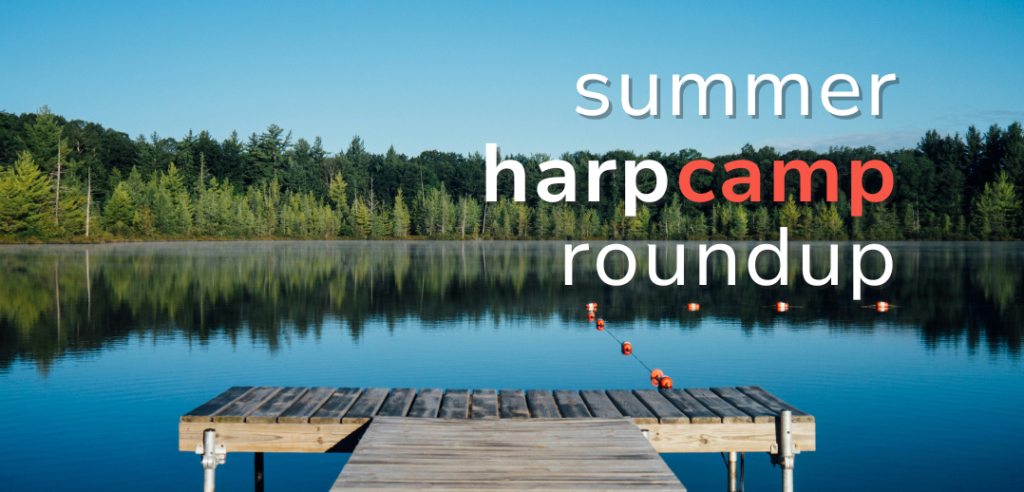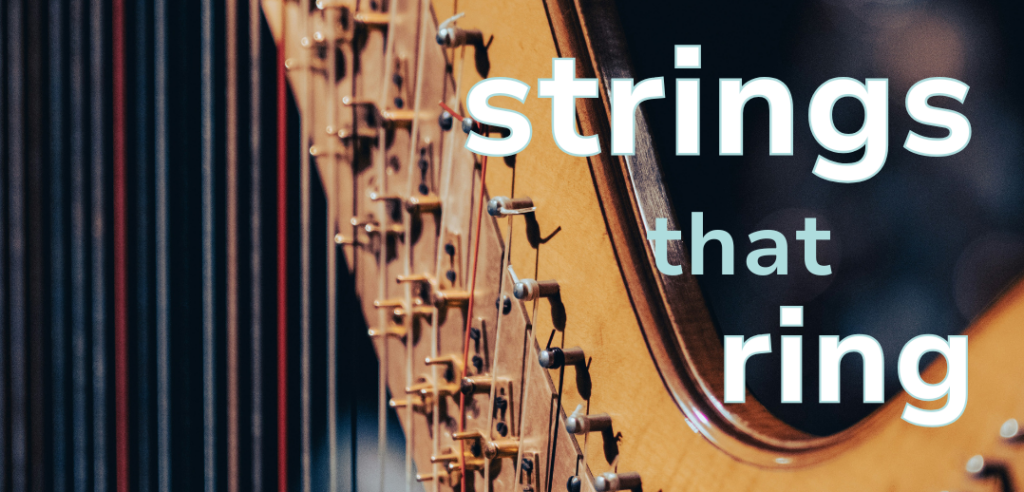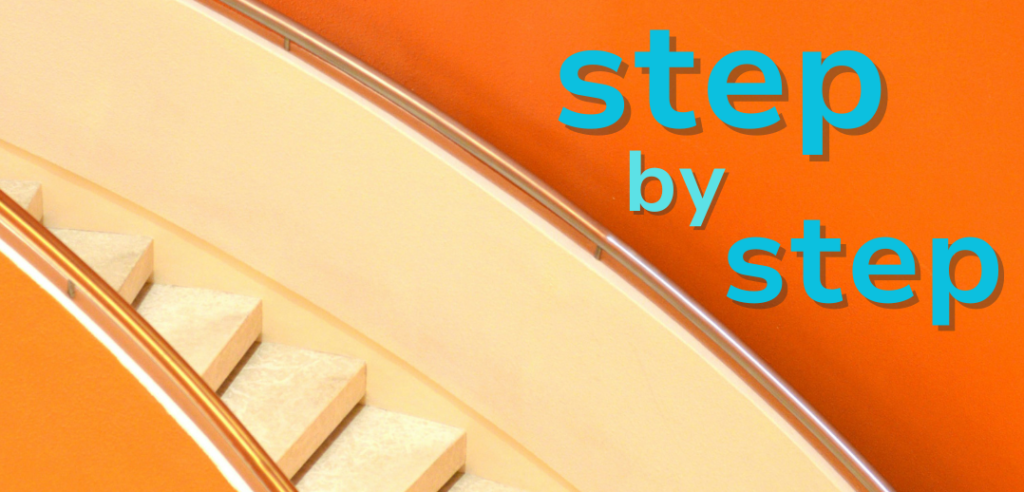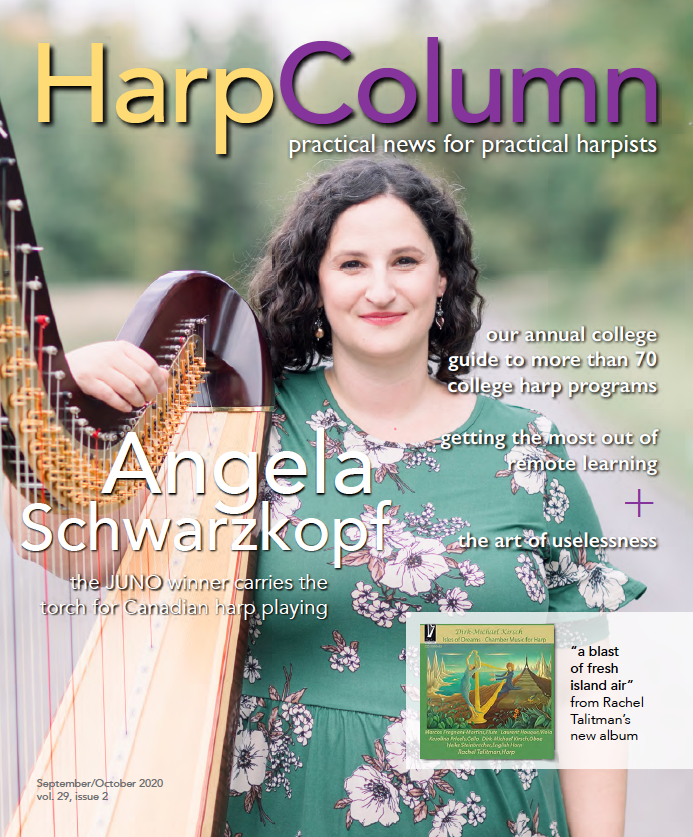Editor’s note: This article is a companion to our semi-annual College Harp Program listing. Download this issue of Harp Column (right) to see the listing in print, or visit our online College Harp Programs Directory for the most current information or to list your own program.
Going back to school this fall feels anything but routine. The coronavirus pandemic has left students and teachers all over the world scrambling to find a new kind of normal. Navigating this “new normal” can be particularly challenging for harpists both in college and auditioning for college this fall. We caught up with some of the most experienced college harp teachers around the country to find out how they are handling the unique educational circumstances we find ourselves in this year and hear their advice on maximizing your learning experience in the time of COVID.
(Scroll to the end for our expert’s audition recording DOs and DON’Ts!)
The glass is half full
A teacher of college level students for many years, Sarah Bullen looks at our current education environment during COVID with a wide-angle lens. “Music becomes even more important at times like this, because it brings some comfort and sanity into the world and the desire to connect with something that goes to the core of who we are,” she reflects. “It comes from a very deep part in all of us—this artistic yearning, the desire to reach for something greater than we are.”
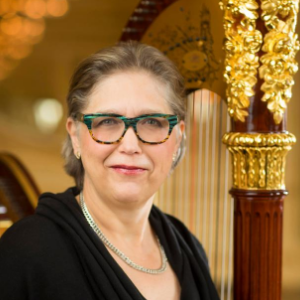
Bullen has been teaching on Zoom since the pandemic began, and while she finds it not ideal, she says there is still real value in it. She suggests making the most of it and looking at the silver linings. “It’s probably opening up teachers all over the world for students all over the world, so we’re all maybe thinking a little bit differently, like ‘Maybe I can have lessons with Isabelle Moretti in Paris, or anyone!’” Bullen believes a fully digitized music library will help both teachers and students navigate online lessons and recommends scanning all of your music. “Clearly, this is the future of teaching.”
Bullen feels the connection between teacher and student is of the utmost importance. As a teacher, she looks for the sense that a student really wants to learn. “While I say that I want a serious, focused, committed student, I’m also looking for a well-rounded individual. I don’t want some humorless robot,” she says. “I’m a demanding teacher, but I also like to have fun. I like that spontaneity, it has to be a mix of things, it can’t be all ‘nose to the grindstone.’ There also has to be a sense of fun, because that’s ultimately where the inspiration and the life comes into it,” she says. “I’m looking for individuals—I’m not looking for cookie cutters.” Bullen points out that music is not a one-dimensional endeavor. It draws from a lot of different aspects of life. “It’s not just the discipline; it’s not a sport, it’s not doing pushups. Yes, we do scales, we do technical studies, but we also blend in all of art and all of humanity. That’s what’s so amazing about art: it’s not just a sport, it’s not just lifting weights.”
We all agonize over impressing in an audition. But Bullen keeps it simple: “Just be really well prepared and present a nicely polished, seamless performance. Present what you consider to be the repertoire that you feel strongest on and that represents you. It’s like putting on your Sunday best. What do you look best in? What’s your favorite outfit? Pick your favorite piece!”
Connecting with your teacher
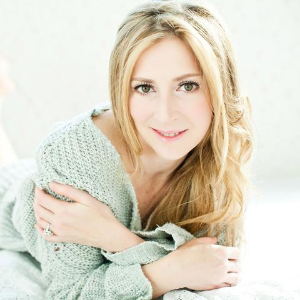
—Elizabeth Hainen is principal harp with The Philadelphia Orchestra and teaches at the Curtis Institute of Music and Temple University
Although she quickly adapted to online teaching, Elizabeth Hainen says she misses the personal time with each student. “This will never be replaced. However, teaching online has provided a unique lens by enhancing visual awareness. Various video angles allow me to see hand position and overall setup at the instrument.”
One of the drawbacks to virtual teaching that many of our experts noted is sound quality. Hainen admits the audio is her biggest hurdle. “The harp has always been a challenge to record due to its resonance and range of highs and lows,” Hainen notes. “Because I have the means to invest in a high-quality mic and camera, my own output is respectable. But many students don’t have the financial means to make this kind of investment. I suggest teachers use earbuds or headphones which will give you better feedback when listening to your students. There are better platforms than Zoom out there like JackTrip and JamKazam. I have my cyber studio set up on Tone Row which I found has the best harp sound.”
Hainen recommends a student work with different teachers before deciding where to study. “Choosing a teacher should be paramount to everything when considering a performance degree. Along with your classmates, the relationship you build with your teacher is second to none. If traveling [for an in-person lesson] is not an option, then I believe a couple video lessons are the next best thing. I suggest choosing one or two expectations of what you hope to achieve [in the lessons]. Don’t over-complicate 60 minutes by having expectations of finding the perfect teacher.
What is most important to you? Building confidence, focused technical training, and nurturing and inspiration are all great attributes of a teacher. But you will not find all of those things in one lesson.” Hainen also believes it’s important that both teacher and student be equitable. “If we can all strive to be more objective and impartial of others, we can change patterns that are not productive.”
Hainen remarks that she’s had several students participate in auditions and competitions during isolation, and she has taken away some helpful tips for auditioning electronically. “We worked together to create videos that are compelling and engaging. Because of the visual focus you need to sell yourself in a close-up way, much like an actor. And for the audio, every dynamic, rhythmic passage and turn of a phrase will need to be very evident. There isn’t as much subtlety as in live venues.”
There is no denying that the range of skills necessary to be a successful musician has expanded in the last few decades, and now, presumably includes online learning and performing. However, Hainen is positive that opportunity has expanded as well. “We are very fortunate as harpists to be self-accompanying and be able take the instrument into new territories. By being flexible and non-conforming, we can provide ourselves with great opportunity.”
More than notes
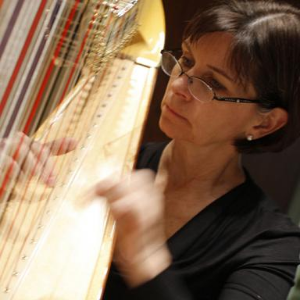
—Nancy Allen is principal harp with the New York Philharmonic and teaches at The Juilliard School
Nancy Allen says she focuses on two main things as a teacher: the fingers working independently in terms of rhythm and control of sound; and creative and musical freedom—finding expressive freedom away from a metronome. When her teaching was forced online in the spring, she says she discovered a silver lining. “Online teaching is a very good microscope under which to examine these aspects of the hand, mind, and heart.”
All of our experts agree on the importance of the teacher-student connection. “Most students these days know whether they will bond with a teacher long before they confirm their attendance at a particular school,” she says. “I wanted to study with Marcel Grandjany, and the moment I met him I thought, ‘This is for me.’ I would never have thought twice.”
On choosing students for her studio at Juilliard, Allen says it’s no secret that she looks for potential. “I am not the best judge in competitions, because I really do see and hear way beyond the moment. I am looking ahead to how the harpist will develop. I am seeking young harpists who have something to contribute. I look for something special, more than notes. It breaks my heart to bits when I have to reject, due to class size, or even waitlist a stellar player,” she says. “Believe me, it happens; and believe me, I feel the pain.”
Allen encourages students to take the long view when considering their college music studies. “Your own motivation and your own optimism will help you achieve your goals. Your energy and your enthusiasm affect mine. It’s not really about the first semester. It’s about the big picture, and we will have ups and downs. The first semester of college is an adjustment time for every incoming freshman. Perhaps the entire first year is as well.” Teachers are rooting for their students and always looking beyond the current moment. “I see your future as a reflection in water, and I believe in you. I know you will adjust and grow. I tell my students that they need to love their playing. That’s our goal.”
Allen believes we all must be comprehensive harpists and musicians. “You need to read through all of our great etudes, and study 65 percent of our solo repertoire. You should study all the major concertos plus one lesser-known one. You need to be a fine orchestral collaborator. You need to have a working knowledge of chord symbols, and you need to be a very good sight-reader. You also need to have cutting-edge rhythm. Ask a percussionist to help you, but work at this even with your kitchen utensils! Most of all, you need to be adaptable, able to create arrangements, figure out what a composer wants, and know how to help our young composers write music for the harp.”
Allen points out that all of these skills are essential for great harp teachers, as well as great harp players, and she knows today’s students will be tomorrow’s teachers. “Students and teachers have worked together over the years to bring the level [of pre-college playing] up to this very impressive place. I love listening to auditions because I am reminded of this progress with every applicant I hear. I constantly thank all of my students, past and present, who have helped me to learn so much.”
Adapt and adjust
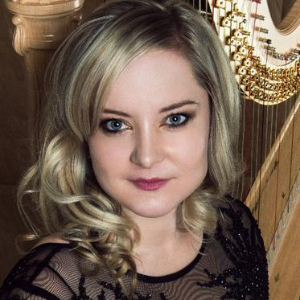
—Marguerite Lynn Williams is principal harp with the Minnesota Orchestra and Chicago Lyric Opera and teaches at Northwestern University and Roosevelt University
“Flexibility is one of the most important attributes for any musician, and having to jump online for virtual teaching put that to the test,” says Marguerite Lynn Williams. “It was important to master the required technology quickly and try to get the best possible equipment for myself and the students as fast as possible.”
Williams says there have been some unexpected pros to online lessons, including no commute time and more access to online resources. “We don’t usually use a computer or iPad at traditional lessons, but with virtual lessons, the ease of pulling up full scores to review parts and pulling in other digital resources has been very helpful. Use everything available, including recordings, videos, scores, and scholarly articles.”
Distance learning requires students to be more organized and self-motivated, Williams believes. “It is their personal responsibility to set and adhere to a productive schedule, including practice time.” During COVID, popping into a practice room to play for a classmate may not be possible. “We have to schedule times to meet-up online to perform for each other and discuss ideas and opinions.” Williams says. “These [normally spontaneous] activities are essential to musical development.”
In surveying today’s job market, Williams believes non-musical skills are vital. “Musicians not only perform, but are also their own publicist, manager, and creative director, among many other titles,” she says. Williams supports picking up essential expertise in college, such as English language skills, networking, marketing, website design and management, knowledge of recording and video technology, basic budgeting and office management, and other specialized skills.
A golden opportunity
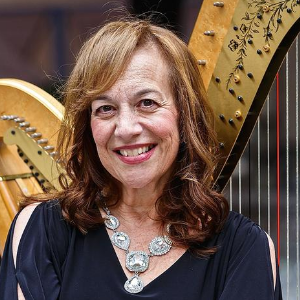
“I have learned that life still goes on during COVID-19,” reports Gretchen Van Hoesen. “We must make the best of it and keep going with our art form of harp playing. Teaching harp students is more important now than ever before. The fact that almost all outside group activities have been cancelled and students and teachers are forced to stay at home has presented a golden opportunity to focus on the harp, learn new repertoire, and improve skills.”
All of the teachers we talked to agree—lessons continue to be rewarding and productive, despite the virtual format. Van Hoesen says online teaching has proved to be an effective way to maintain momentum and progress, outline goals, impart the necessary tools to solve problems, and give hands-on help. “Spending one-on-one time with a student and addressing their special individual issues is very important. It helps them improve, maintain focus, and keeps them moving forward when everything else around us is cancelled or in chaos.”
There is one element of musical life that Van Hoesen laments is just not possible yet: chamber music. “Notes can be learned, which is great, but the in-person process of give and take, learning to blend, and responding to creative phrasing on the spot is just not possible. Using click tracks to put together a pre-recorded individual part of a chamber or orchestral piece is certainly done and expected during COVID, but it does not offer the musical education so essential for students learning to listen, adjust, and play together.”
In lieu of Zoom sessions, Van Hoesen had her chamber groups complete a mock grant application and submit three possible full-length written programs of repertoire.
Again, looking for the silver linings in the current situation, Van Hoesen is a fan of the virtual recital. “It can be a wonderful learning experience and an effective substitute for a live recital. Turning an apartment, outside porch, or living room into a recital hall in order to present a recital is a new learning experience.”
Echoing the advice of other teachers, Van Hoesen says students need to come out of college with a well-rounded skill set. “It’s important for students to have marketing skills, public speaking skills, orchestral and chamber skills, and pedagogical skills. Learning how to teach beginners and how to create and grow a harp class is very helpful. Graduates need to be able to create work for themselves in a variety of areas including possibly maintaining and marketing a chamber group.” Van Hoesen says it’s not just diverse skills, but a diverse musical palette that is needed when entering the working world. “They should be well versed in wedding music, pop music, arranging tunes, and should be able to write contracts for selling their harp skills. Graduates should know how to network and find job openings and places to audition.”
Van Hoesen also notes the importance of understanding audience engagement and public speaking. “The number of applicants considered for teaching positions has also risen, so advanced degrees, pedagogical experience, and an extensive resume is helpful to increase the chances of being hired.”
Attitude of gratitude
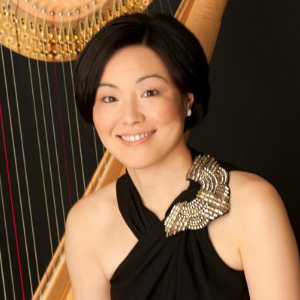
The sudden transition to virtual learning has been a smooth one in Mariko Anraku’s eyes. From her experience, there has been no barrier with virtual teaching. “Because we already have such a great connection, there’s already built-up trust,” she explains. Though Anraku doesn’t feel her teaching style has changed, in some ways she feels she and her students are actually more focused during their video lessons. Anraku has even found ways for students to learn during chamber coachings, encouraging her students to come up with new projects. A flute and harp duo did deep research into the pieces and composers they were working on, even studying the history of their instruments. “It was a silver lining in many ways, because we experimented and naturally came up with new projects,” Anraku says.
Whether your college audition is virtual or in-person, Anraku says that stability in playing is important, but attitude really counts. “I think it’s really great if someone comes in with a smile,” she says. Anraku is more interested in being able to see willingness, devotion, and commitment in a student’s playing rather than solely focusing on perfect execution of the notes in an audition. “Come in as yourself. Be open. We know that playing auditions is not comfortable for most people. We’ve all been through it.” For those students worrying about making a good impression, Anraku says, “I wouldn’t want the student to feel like they need to give an impression. Just be yourself…it’s not about making an impression. It’s life. You’re auditioning because you want to keep learning, and if you’re so caught up in trying to do something to impress or to get good grades, then you’re missing the whole point. The whole point is to go deep into what you’re doing and make a commitment to learn and absorb as much as possible and to work on it yourself.”
When considering lifelong skills, beyond diligence and hard work, Anraku believes it’s all about people and the connections between people. “Honor and respect everyone that you meet. It’s all about Karma. It’s important to have a positive mindset with sincerity and genuine intentions in both personal relationships and music making, as well as being present and willing to give and help.”
Anraku reminds us to be grateful that we’re musicians. “No matter how hard things get, when we go to the harp and we really focus on just making a beautiful sound, alone, and become in the now with that, then everything disappears, and we can be still, peaceful, happy, and serene. Always take the positive out of every experience, even this COVID experience. With music, be conscious, in the now, and grateful and your music will flow and manifest that way too.” •
Dos and don’ts of college audition recording
We asked our experts—the ones who are actually listening to college audition recordings—to give us their advice for creating an effective audition recording.
DO…
Show your face! Choose a camera angle that will give a clear view of your range of emotions.
—Elizabeth Hainen
Try to memorize the audition, or minimize the amount you look back and forth at the music.
—Nancy Allen
Give yourself a few trial runs during the week before. Then make the recording. I have learned so much about the trials of recording during this period of isolation. I have recorded video and audio non-stop for all of my positions. It’s hard work!
—Nancy Allen
Take deep breaths before you start, get yourself well grounded and in the zone with your piece before you start playing. There’s no need to rush into playing as soon as you sit down.
—Mariko Anraku
Think big picture. It gives you something to strive toward and get a little closer to each day. For a young musician, that ultimate goal is to pull the whole piece together in a cohesive package.
—Sarah Bullen
Consider the audio recording. There are lots of microphones available to plug into your digital device. As a music student, this is a piece of equipment you should consider investing in for the future. You’re going to use it a lot as a student and professional.
—Marguerite Lynn Williams
DON’T…
Don’t worry about mistakes. Avoid showing any frustration, but just do your best at the time. Perfection is not the goal, but a good representation of your playing is what is needed.
—Gretchen Van Hoesen
Don’t have a cluttered room in the background.
—Elizabeth Hainen
Don’t forget to tune well, and that includes low notes, high notes, and even glissandos. Eileen Malone, who taught at Eastman, used to judge many harp contests and she told me once, “I don’t care how well they play, if they cannot tune their harp, I am not interested!” Good intonation makes every excerpt sound better.
—Nancy Allen
Don’t forget to look the part. Dress appropriately. No distracting outfits or accessories. Be respectful and use common sense.
—Mariko Anraku
Don’t forget to consider what the video looks and sounds like. Try to set up in a location with as little as possible in the frame besides you and the harp. The lighting should be from the front (no window behind you) so you don’t end up as a silhouette, and your hands are clearly visible while playing.
—Marguerite Lynn Williams
Don’t wait until the last minute to record your audition. Plan ahead and begin pre-recording at least one month in advance.
—Gretchen Van Hoesen




